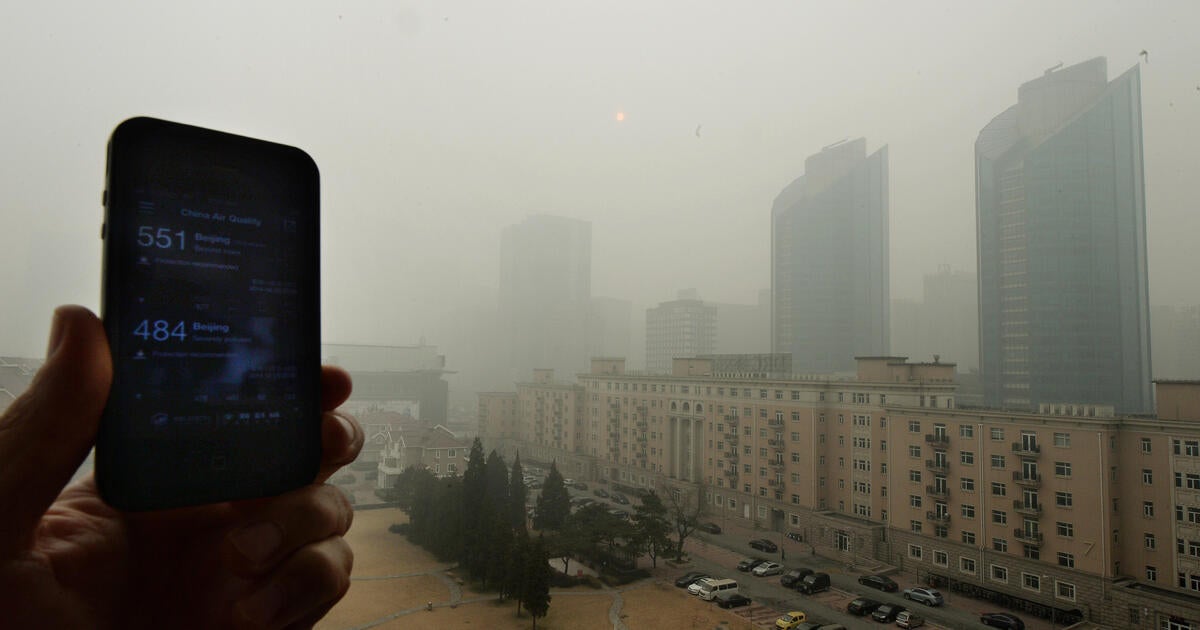This week, staff at the State Department were left shocked and bewildered by a department directive that instructed embassies and consulates worldwide to cease the publishing of air quality monitoring data. The announcement, which was reviewed by CBS News, was sent to staff on March 4 and stated that there is currently “no anticipated date for real-time data to be available.”
The decision has caused consternation among embassy staff and their families, who have relied on these reports to alert them to periods of poor air quality. The importance of monitoring air quality and the potential health risks of pollution are well-documented. One staffer, who asked to remain anonymous due to fears over job security, expressed their bewilderment at the decision, especially given that the existing infrastructure to monitor air quality is already in place and operational.
“I was shocked by the announcement,” said the unnamed employee. “I don’t see any purpose in turning off this data, it doesn’t make any sense.” A similar sentiment was echoed by another department employee who also failed to see the logic behind this move.
When questioned about the change in policy, a State Department spokesman told CBS News that the air quality monitors are still operational, but the effort to transmit air pollution data from embassies and consulates has been halted “due to funding constraints that have caused the Department to turn off the underlying network.” However, when asked about the specific costs associated with operating the program, the State Department did not provide a response.
Rick Duke, who served as the deputy special envoy for climate at the State Department until January, disputes the argument of financial constraints. According to him, “The cost to maintain these systems is trivial.” Duke believes the decision is driven more by misguided anti-climate ideology within the Trump administration than by budget considerations. “These monitors aren’t even about climate,” said Duke, “Why take away health information from embassy staff and the public?”
The practice of air monitoring at U.S. embassies began informally in 2008 when a single monitor was placed at the embassy in Beijing, China. The results of this monitoring were subsequently posted on Twitter on an hourly basis, keeping the public informed about the city’s levels of air pollution. This initiative gained significant attention in 2010 when the account, known as AirBeijing, tweeted that the air on November 11 was “Crazy Bad” due to dangerously high levels of pollution.
The primary purpose of this monitoring was to inform U.S. citizens residing in the region about the state of the city’s air quality. However, the Chinese public quickly latched onto this information and began demanding that their government address the issue of toxic pollution, an issue that local officials often downplayed or ignored.
In response to the success of the air monitoring in Beijing, the State Department expanded the program to other embassies around the globe, installing 78 monitors in various locations. The data collected was then made available on AirNow.gov. A scientific study conducted in 2022 found that the embassy program was highly effective in reducing air pollutants, “resulting in substantial decreases in the premature mortality risk faced by the over 300 million people living in cities home to a US embassy monitor.”
However, with the termination of the program, the webpage for embassy data now only produces an error message. The last available reading in Beijing was posted on March 4, the same day the agency stopped transmitting data.
For the current State Department staff, access to air quality data is an essential factor when considering overseas assignments. This data is particularly crucial for those who must move their entire family to places with unhealthy air quality or where local government air monitoring is unreliable or non-existent.
“Robbing employees of the information they need for the health decisions of their children is immoral,” said a current staffer, again speaking on condition of anonymity due to fears of retaliation.
In response to these concerns, a State Department spokesperson informed CBS News that the air data collection is still ongoing and “will be made available when there is a secure and reliable way to transmit it.” The department is reportedly “evaluating other transmission options.” The spokesperson also noted that the air quality monitoring equipment “is only one of a number of tools the Department uses to ensure the health and safety of our staff.”
However, when CBS News further questioned staffers about these other supposed tools, they stated that they were not aware of any and did not know how else to access this vital information.
The sudden termination of the air quality monitoring program, the lack of transparency about its costs, and the absence of an alternative system to ensure the health and safety of State Department staff and their families raise serious questions. It’s clear that the decision has caused significant concern among employees, with some even questioning its morality.
Whether the State Department’s claims of funding constraints are valid or whether, as Rick Duke suggests, this move is driven more by a misplaced anti-climate ideology remains unclear. What is apparent, however, is the indispensable role that air quality monitoring plays, not only in protecting the health of embassy staff and their families but also in pressuring governments worldwide to address air pollution issues.
With no immediate solution in sight, the future of air quality monitoring in U.S. embassies and consulates hangs in the balance. However, the outcry from staff and the clear public health benefits of such a program make it an issue that is unlikely to disappear from the agenda anytime soon.
Written by Tracy J. Wholf, a senior coordinating producer of climate and environmental coverage for CBS News and Stations, based in New York.









